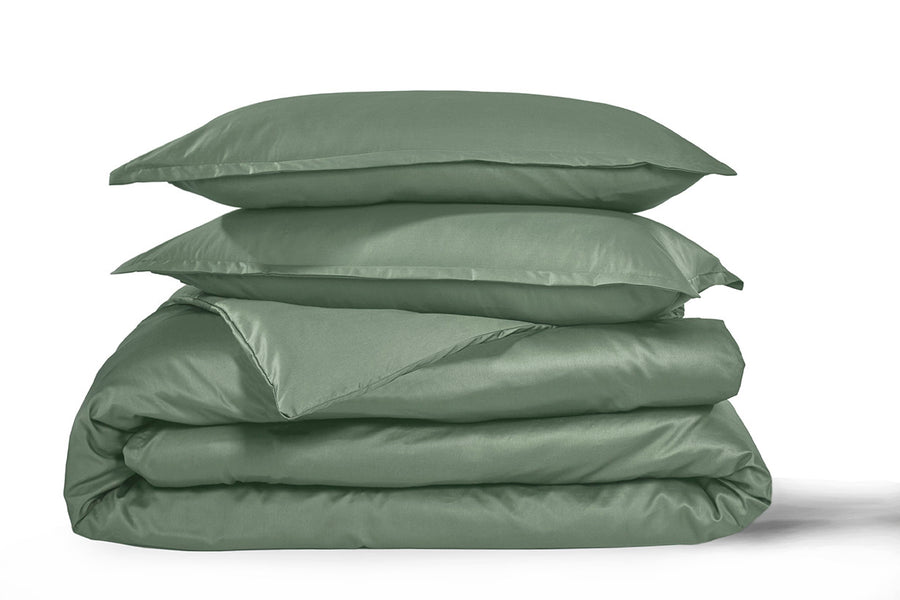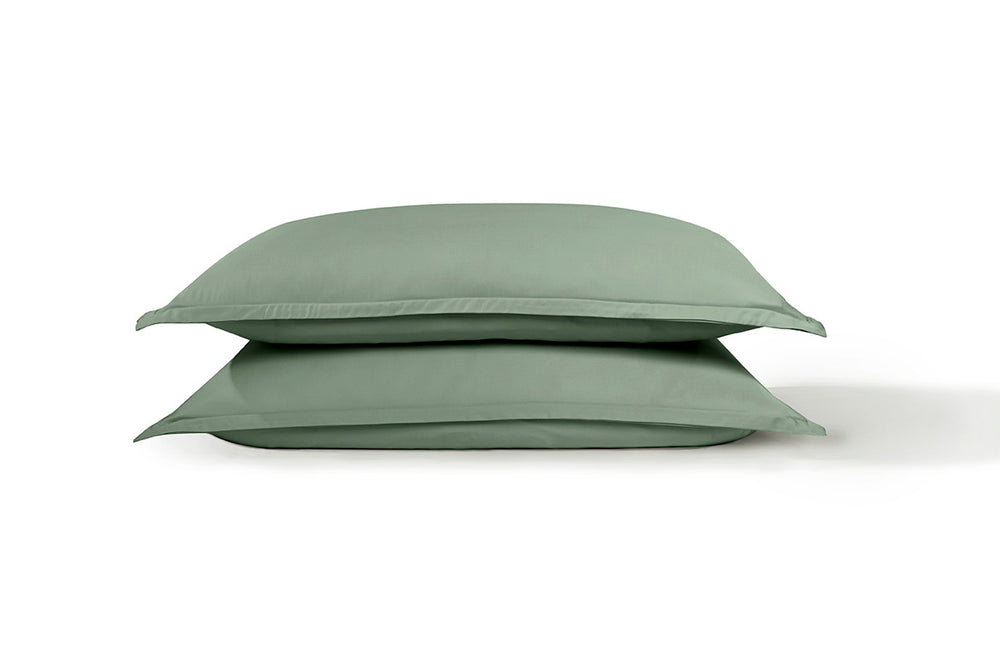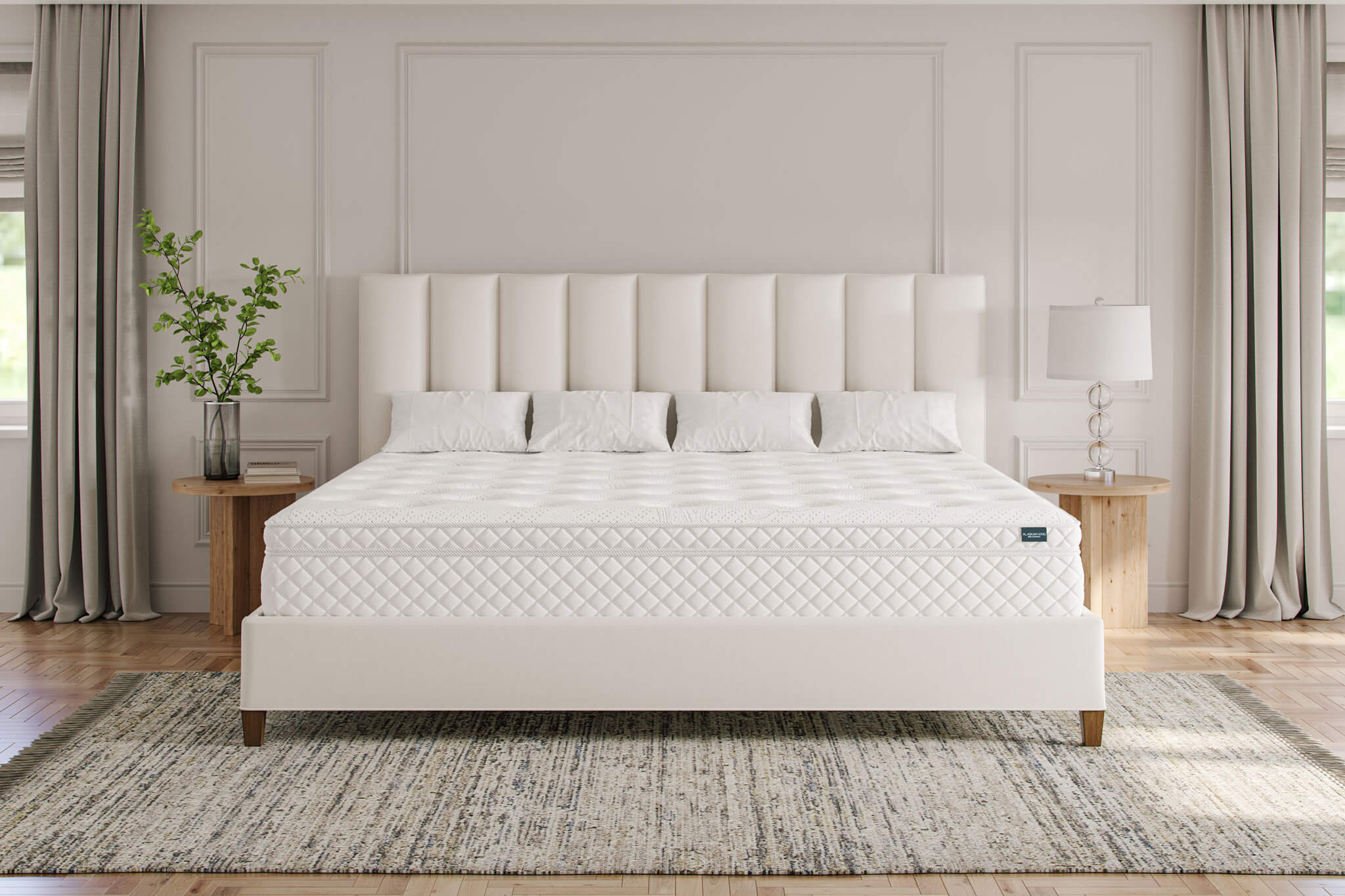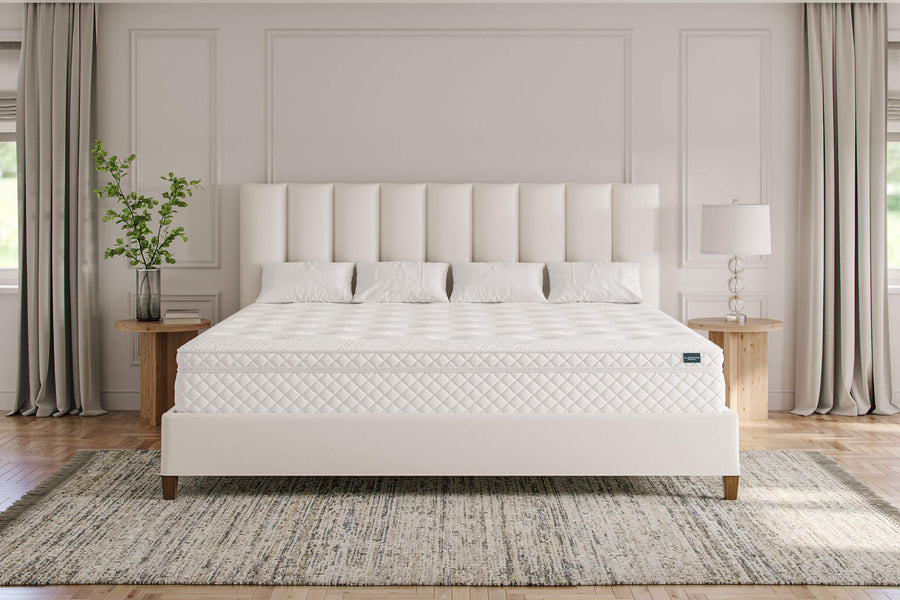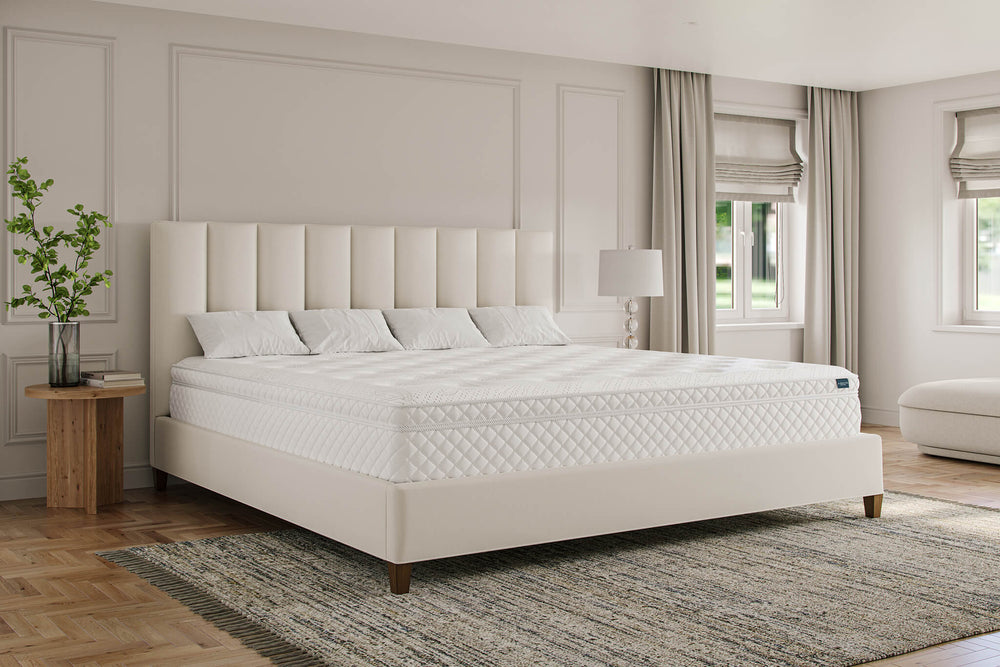Unlock the Secrets to Deep Sleep with Alaskan King Beds
Dragging yourself through the day after a bad night’s sleep feels like being an extra in a zombie movie (minus the cool makeup). And what’s our go-to solution? The holy grail of wakefulness: coffee.
However, relying on coffee instead of focusing on getting more rest can only put you in an endless cycle of poor sleep and loading up with caffeine to catch up.
So, is there a better solution?
Yes – Alaskan King beds.
These family-size beds help with one of the most common causes of poor sleep – lack of space. That way, instead of cramped, elbow-to-elbow combat, you can enjoy a spacious sleeping mattress that redefines the meaning of comfort.
In this article, we explore the importance of sleep, the risks of sleep deprivation, and how an Alaskan King bed can be your ticket off the caffeine roller coaster and into dreamland.
How Alaskan King Beds Help You Sleep Better: Why Is Sleep so Important?
Sleep is a universal phenomenon across all living beings. Although we still don’t know the exact reasons behind this biological need, the consensus is clear: sleep is crucial for our health and well-being.
Let’s see how sleep impacts our physical, mental, and emotional health.
Physical Health Benefits of Sleep
During sleep, our bodies enter a state of repair and rejuvenation, allowing us to function optimally. This restorative process is crucial for maintaining various aspects of our physical health:
- Hormone regulation: Sleep helps balance the hormones that control appetite, growth, and stress.
- Immune function: Adequate sleep strengthens the immune system, helping to fend off infections.
- Cardiovascular health: Quality rest lowers the risk of heart disease by managing blood pressure and reducing inflammation.
- Injury healing: The body repairs tissues and cells during sleep, which is crucial for recovering from injuries and daily wear and tear.
- Weight management: Good sleep helps to maintain a healthy weight, as it affects hunger hormones and metabolism.
Mental Health Benefits of Sleep
Sleep is also when the brain does the much-needed clean-up and removes all the waste accumulated throughout the day. This process has multiple benefits for mental health, including:
- Cognitive performance: Improves memory, focus, and decision-making abilities.
- Emotional regulation: Helps manage emotions and mood, reducing the risk of depression and anxiety.
- Dealing with stress: Lowers cortisol levels, the body’s stress hormone, promoting a sense of calm and helping you overcome everyday obstacles.
- Creativity: Improves creative thinking and problem-solving skills by consolidating memories and ideas.
Is Lack of Sleep Dangerous?
Even a night of poor sleep can throw your body out of balance, affecting everything from your focus to your mood.
According to research, here are the short-term effects of sleep deprivation:
- Irritability: Lack of sleep makes you more irritable and prone to mood swings and negative emotional responses to daily stressors.
- Somatic pain: Sleep deprivation may increase the perception of pain, leading to physical discomfort, such as headaches or muscle aches.
- Emotional distress: Insufficient sleep can lead to heightened emotional distress, amplifying feelings of anxiety or sadness.
- Cognitive impairment: Critical thinking, attention, and problem-solving skills can all suffer, which impacts your ability to process information and make decisions.
- Memory and learning: Consolidating memories and new information becomes harder due to lower short-term recall and long-term memory formation.
- Reduced quality of life: The cumulative effect can significantly reduce the quality of life, affecting both personal well-being and professional performance.
If you continue to struggle to get sufficient sleep, it can lead to even bigger health problems, increasing the risk of various health conditions, such as:
- Hypertension: Chronic sleep deprivation can lead to higher blood pressure, increasing the risk of hypertension.
- Dyslipidemia: Poor sleep can affect lipid profiles, potentially leading to imbalances like higher LDL cholesterol.
- Cardiovascular disease: The strain on the heart from factors like hypertension may elevate the risk of heart-related illnesses.
- Weight-related issues: Lack of sleep can disrupt appetite-regulating hormones, which might contribute to weight gain.
- Metabolic syndrome: Some people may develop a cluster of conditions that include high blood pressure, high blood sugar, excess body fat, and abnormal cholesterol levels.
- Type 2 diabetes mellitus: Insulin sensitivity can decrease with inadequate sleep, raising diabetes risk.
- Colorectal cancer: Some studies suggest a link between sleep deprivation and an increased risk of colorectal cancer.
- All-cause mortality: The overall risk of death is higher in individuals with chronic sleep disturbances.
How Alaskan King Beds Help You Get Better Sleep
The size of your bed plays a vital role in the quality of your sleep. That’s why getting a bigger than King mattress can make all the difference in unlocking that deep sleep you crave so much.
The sheer size of an Alaskan King bed, measuring an impressive nine feet by nine feet, allows for a sleeping experience that’s unrivaled in its comfort and freedom.
The Alaskan King offers ample room to co-sleep without compromise for those who share their bed. Each person can move, stretch, and find their perfect sleep position without encroaching on others’ space. It’s the end of middle-of-the-night elbow jabs and blanket hogging, ensuring that everyone wakes up refreshed.
That’s why this giant mattress is perfect for families with young children and pets. It’s a simple yet effective solution to the challenges of co-sleeping, ensuring everyone has the space they need for a good night’s rest.
In addition, the generous space allows for even weight distribution and reduces the likelihood of waking up due to discomfort or restricted movement. This freedom can be particularly beneficial for those with chronic pain or sleep disorders, as the extra room can help in finding a comfortable sleeping position that minimizes pain and disturbance.
Lastly, extra space makes you more relaxed and calm because you don’t feel cramped and can always enjoy the most comfortable sleep position. As a result, it becomes easier to fall asleep.
How to Get Enough Sleep on an Alaskan King Mattress
Upgrading to an Alaskan King mattress is only the first step toward transforming your sleep experience. Although the unmatched comfort offers a great foundation, it’s crucial to complement it with habits that promote restful sleep.
Here’s how you can maximize the potential of your family-size bed:
- Establish a routine: Try to go to bed and wake up at the same time every day, even on weekends. This helps synchronize your internal clock, which is important for quality sleep.
- Optimize your sleep environment: Ensure your bedroom is cool, quiet, and dark. Consider blackout curtains, white noise machines, and a comfortable room temperature to create an ideal sleeping environment.
- Invest in quality bedding: Choose high-quality, breathable materials that complement the mattress’s comfort, such as bamboo or cotton sheets. Add an oversized comforter that suits your preference for warmth.
- Mind your sleep position: With so much space, experiment with different positions to find what’s most natural and comfortable for your body. Pay attention to your body’s alignment, using pillows as necessary to support a neutral position.
- Limit screen time: Screens emit blue light that can interfere with your ability to fall asleep. That’s why you shouldn’t use electronics for at least an hour before bed, opting for a book or another relaxing activity to wind down instead.
- Embrace the space: If you’re sharing the bed, set up distinct sleep zones to maintain personal space, ensuring you and your partner have ample room to sleep undisturbed.
- Create a pre-sleep ritual: A relaxing bedtime routine sends a signal to your body that it’s time to wind down. Include activities like a warm bath, gentle stretching, or meditation to ease the transition to sleep.
- Watch what you eat and drink: Avoid consuming heavy meals, caffeine, or alcohol close to bedtime. These can disrupt sleep patterns and affect sleep quality.
- Stay active during the day: Regular exercise promotes better sleep and helps you fall asleep faster. However, avoid intense exercise close to bedtime because it can make it harder to relax and fall asleep.
Start Sleeping the Right Way With Alaskan King Beds
Sleep is the foundation of wellness that supports everything from mental well-being to physical health.
Missing a night of sleep can make us tired and unable to focus and perform. Even worse, chronic sleep deprivation increases the risk of cardiovascular disease, weight gain, diabetes, and other conditions.
An Alaskan King bed offers exceptional space and comfort, encouraging deeper, more restful sleep and mitigating the common disturbances of co-sleeping.
More room means more sleep. Get an Alaskan King mattress and discover the true meaning of a good night’s sleep.


